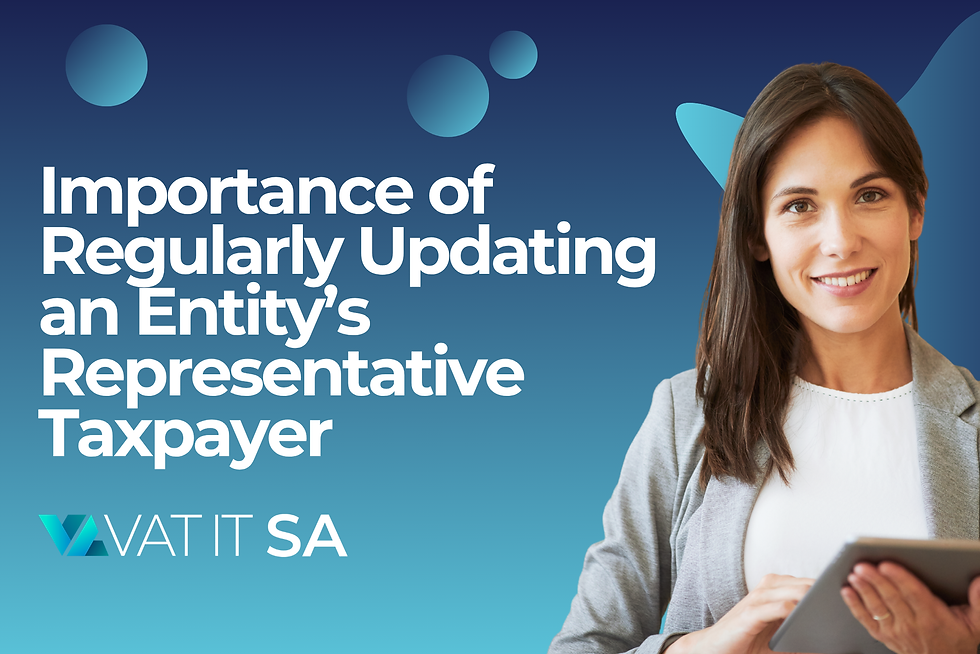Changes to SARS VAT Verification Letters
- Ruan Jansen van Vuuren

- Jun 17, 2025
- 2 min read
SARS has recently implemented notable changes in its approach to Value-Added Tax (VAT) verifications, indicating a more focused and detailed methodology.
Historically, SARS' VAT verification letters were typically automated notifications indicating a taxpayer’s selection for verification, accompanied by a standard information request, usually including input and output schedules, the top five input and output tax invoices, and a reason for the refund claimed. These engagements were largely generic and did not specifically relate to the details disclosed on the VAT201 return. Consequently, they often led to delays, as the information provided by taxpayers frequently fell short of SARS’ requirements, necessitating further requests and ultimately delaying the processing of refunds.
In contrast, the current verification approach adopted by SARS places increased emphasis on the specific data submitted on the VAT201 return. This has resulted in more comprehensive and tailored requests. While the traditional requests for output and input tax schedules and high-value invoices remain, SARS now often requires additional supporting documentation. This may include:
Evidence for zero-rated supplies (especially exports),
Documentation for VAT on imports,
Details on exempt supplies,
Explanations for credit notes or VAT201 adjustments,
Trial balances,
Bank statements,
Capital asset purchase documentation,
Reverse charge applications, and
Industry-specific data relevant to the taxpayer's operations.
For businesses involved in the export of goods, SARS now mandates detailed disclosures such as the names and contact details of recipients abroad, in line with Interpretation Notes 30 and 31, as well as the provision of corresponding export documentation.
Taxpayers procuring services from foreign suppliers—especially electronic services—must now submit a list detailing all such services received from offshore entities.
In cases where exempt supplies are reflected on the VAT201, SARS expects a clear rationale for the non-application of input tax apportionment rules.
Conclusion
These enhanced verification procedures underscore the importance of meticulous record-keeping and proactive compliance. Taxpayers are encouraged to remain informed and to approach VAT verifications with thorough preparation.
Should you require support in navigating these evolving requirements, we invite you to contact our VAT specialists for professional assistance.



Comments